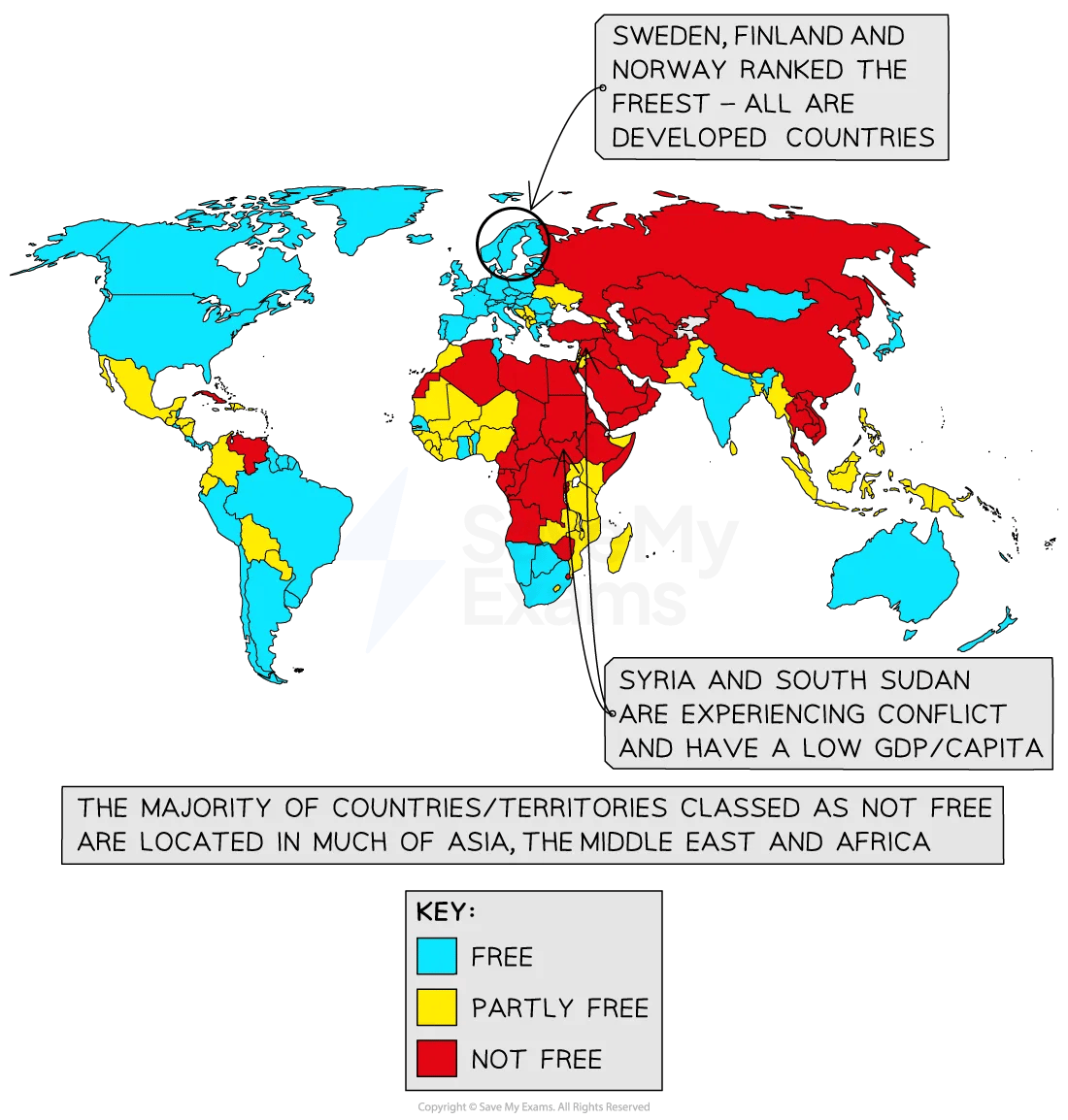Priorities Relating to Human Rights
- In international meetings, some countries are vocal on the issue of human rights whilst others prioritise economic development
- This could lead to human rights’ abuses, such as child labour
- The UK is a world leader in defending human rights and promotes their protection in international forums e.g.
- In 2020, the UK passed a law (The Global Human Rights Sanctions Regulations 2020) to allow it to impose sanctions on countries that are abusing the human rights of their citizens
- The UK sanctioned Russia over the war in Ukraine, including the banning of certain Russian imports
- Some countries favour economic development over human rights e.g. Singapore
- Singapore:
- Has one of the world’s highest GDP per capita
- Is one of the most business-friendly economies in the world
- However, the government limits political and civil rights (as freedom of expression, and peaceful assembly and association) through laws
- It still has the death penalty and has one of the world’s highest execution rates per capita


